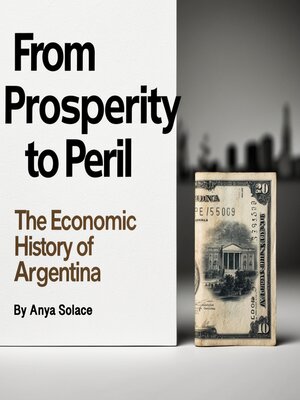
Sign up to save your library
With an OverDrive account, you can save your favorite libraries for at-a-glance information about availability. Find out more about OverDrive accounts.
Find this title in Libby, the library reading app by OverDrive.



Search for a digital library with this title
Title found at these libraries:
| Library Name | Distance |
|---|---|
| Loading... |
The economic history of Argentina is deeply rooted in its colonial past, which shaped much of the country's early economic structures and patterns. Argentina, as part of the Spanish Empire, was initially regarded as a peripheral region, with its economic activities largely shaped by the colonial powers' interests. The Spanish imposed a rigid economic system in which the colony's natural resources were exploited to benefit Spain, primarily through the export of silver, agricultural products, and other raw materials. This colonial legacy set the stage for Argentina's agricultural-based economy and influenced the development of land ownership patterns and labor systems that would persist well into the 19th century.
During the colonial period, the region that would become Argentina was an important supplier of agricultural products, such as cattle and grains, to the Spanish Empire. Large estates, known as estancias, were established, and much of the labor force was provided by indigenous peoples and African slaves. The development of these estates led to the establishment of an agrarian economy that would remain a cornerstone of Argentina's economic identity. The concentration of land and wealth in the hands of a few, however, created significant economic inequalities that would become a recurring theme in Argentina's history.
Following Argentina's independence from Spain in 1816, the young nation faced significant challenges in establishing its economic identity. The economic institutions that had been put in place by the colonial powers were largely centered around the needs of the empire, and there was little infrastructure to support an autonomous economy. The new republic was faced with the task of building a functional economy that could support its growing population while integrating itself into the global economy.







